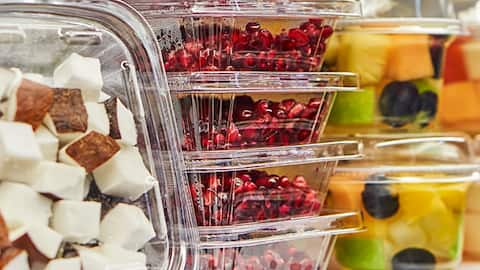Even eating from plastic containers can harm your heart: Study
What's the story
Your favourite takeout meal might be serving up more than just deliciousness—it could be a recipe for heart failure!
A shocking new study by Chinese researchers suggests that regularly eating from plastic takeout containers might dramatically raise the risk of congestive heart failure.
The study, involving over 3,000 people and experiments on rats, found that harmful chemicals leached from plastic can wreak havoc on heart health.
If you're a takeout addict, it might be time to rethink your packaging choices!
Chemical exposure
Chemicals in plastic containers pose health risks
The study discovered that frequent exposure to plastics is associated with a higher risk of heart failure.
Plastic materials may contain as many as 20,000 different chemicals, including BPA, phthalates, and Pfas.
These chemicals are known health hazards and are commonly found in food packaging.
They have been linked to several health problems, including cancer and reproductive harm.
Experiment details
Study simulates real-world conditions of plastic use
The researchers simulated real-world conditions by placing boiling water in plastic containers for different durations.
This was done to study the rate of chemical leaching, which increases with hot contents.
Previous research cited in the study indicated that microwaving plastic containers could release up to 4.2 million microplastic particles per square centimeter.
The specific chemicals leached from the plastic weren't identified, but a connection was noted between common plastic compounds and heart disease.
Animal testing
Plastic leachates cause significant changes in rats
Rats were provided with water contaminated with leachates from plastic containers for months.
The analysis showed drastic changes in their gut biome and metabolites associated with inflammation and oxidative stress.
Analysis of the rats' heart muscle tissue showed damage, although no statistical difference was found between different exposure durations.
This indicates that even short-term exposure to these chemicals could potentially be harmful.
Recommendations
Public health advocates suggest alternatives to plastic
While the study doesn't offer specific consumer protection recommendations, public health advocates advise against microwaving or adding hot food to plastic containers.
They recommend using alternatives such as glass, wood, or stainless steel utensils and packaging.
For takeout food, it is recommended to transfer the food to glass packaging when you return home as a precautionary measure against potential health risks from plastic containers.
